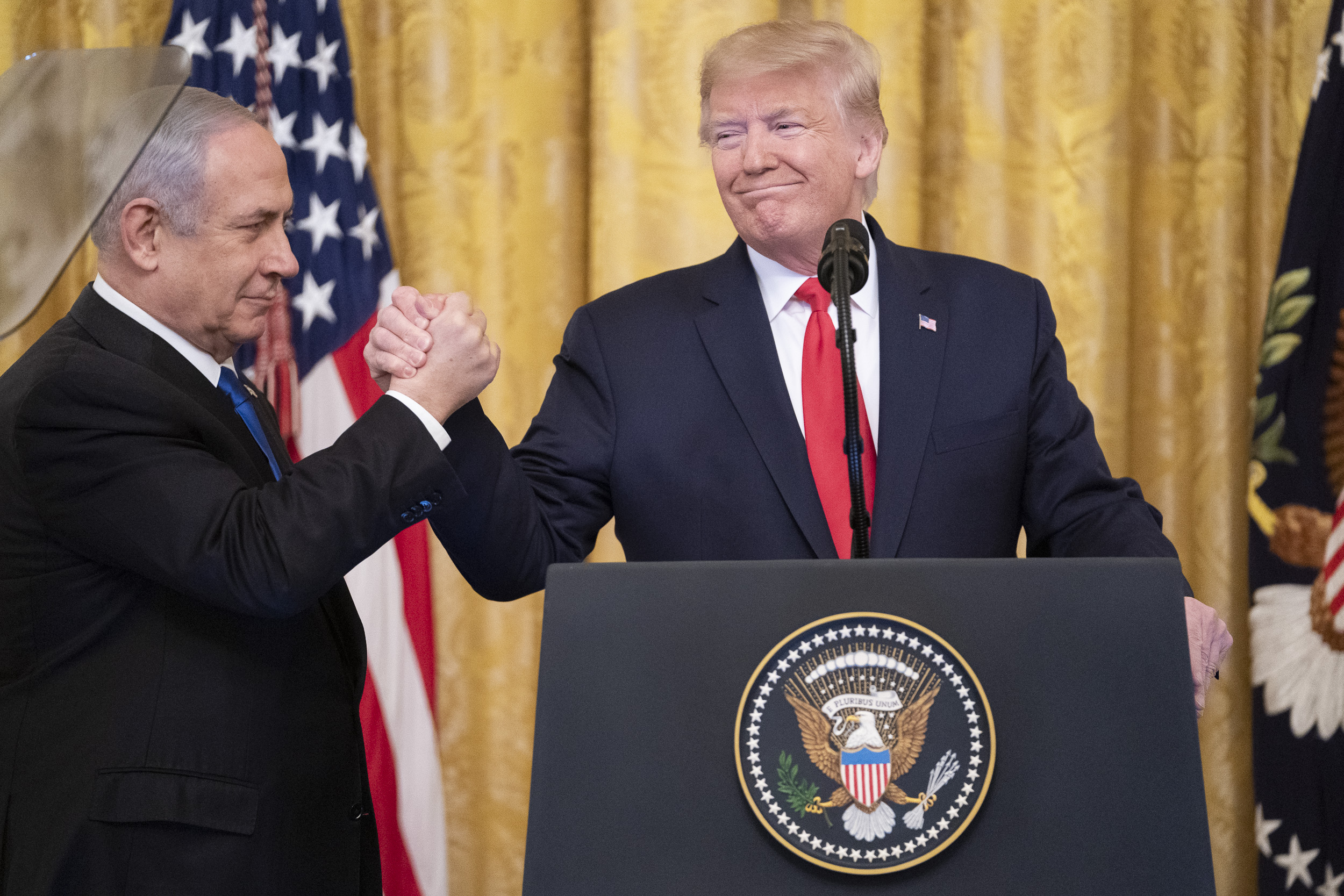The relationship between Donald Trump and Benjamin Netanyahu, once characterized by unprecedented warmth and mutual admiration, has taken a dramatic turn as the two leaders reportedly engaged in a heated shouting match over the humanitarian situation in Gaza. Citing unnamed sources, the report claimed the phone call devolved into a shouting match. While the White House refused to comment, the Prime Minister’s office claimed it was “fake news”.
According to NBC News, citing unnamed senior U.S. officials, the dramatic phone call occurred on July 28, following a public dispute over the humanitarian situation in Gaza. The conflict began when Netanyahu declared at a public event that “there is no starvation in Gaza,” despite widespread reports of hunger and suffering in the Palestinian enclave.
Trump publicly contradicted his former ally the following day during a visit to Scotland, stating he was “not particularly convinced” by Netanyahu’s assurance. The president said there was “real starvation” in Gaza, adding pointedly, “You can’t fake that.” He mentioned seeing images of children in Gaza who “look very hungry.”
Angered by Trump’s public contradiction, Netanyahu reportedly demanded a phone call with the president. What followed was described by officials as “a direct, mostly one-way conversation about the status of humanitarian aid” with Trump “doing most of the talking.”
During the call, Netanyahu maintained that reports of starvation in Gaza had been “fabricated” by Hamas and that hunger was not widespread in the territory. However, Trump interrupted the Israeli leader and began yelling, according to the NBC report. The president insisted that his aides had shown him proof that children in Gaza were starving and that he didn’t want to hear such evidence dismissed as “fake.”
The dispute centered on concerns in the White House about the U.S.-backed Gaza Humanitarian Foundation (GHF) and reports of high civilian casualties near aid distribution centers. One U.S. official told NBC that “The U.S. not only feels like the situation is dire, but they own it” due to America’s role in the humanitarian foundation.
The tense exchange prompted immediate diplomatic action. The White House dispatched Steve Witkoff, its special envoy to the Middle East, to the region to try to reach consensus on next steps in the conflict. During his visit, Witkoff toured a GHF distribution center with U.S. Ambassador to Israel Mike Huckabee and questioned Israeli officials about whether current relief efforts were sufficient.
Following the diplomatic mission, U.S. officials announced plans to significantly expand food distribution points in Gaza from four to 16 locations. When asked Tuesday whether he supported an Israeli military takeover of Gaza, Trump declined to rule it out but stressed that his focus was on ensuring civilians received food.
Both sides have remained officially tight-lipped about the reported confrontation. White House spokeswoman Anna Kelly told NBC News: “We do not comment on the President’s private conversations. President Trump is focused on returning all the hostages and getting the people in Gaza fed.”
The Prime Minister’s Office took a stronger stance, dismissing the entire report as “complete fake news.”
During Trump’s first presidency (2017-2021), the relationship between the American president and Israeli prime minister was notably cordial and strategically aligned. Trump made several historic moves that delighted Netanyahu and the Israeli right, including recognizing Jerusalem as Israel’s capital and moving the U.S. embassy there in 2018. The Trump administration also recognized Israeli sovereignty over the Golan Heights, withdrew from the Iran nuclear deal, and brokered the Abraham Accords, normalizing relations between Israel and several Arab nations.
Netanyahu frequently praised Trump’s support, and the two leaders appeared to have developed a genuine personal rapport. Trump was even featured in Netanyahu’s campaign advertisements, and the Israeli leader named a settlement in the Golan Heights after the American president. Their public appearances together were marked by mutual praise and visible camaraderie.
The reported shouting match represents a stark departure from the Trump-Netanyahu relationship of years past. Where once there was public praise and private coordination, there now appears to be tension and disagreement over one of the most sensitive issues in Middle Eastern politics.
Whether this represents a temporary diplomatic spat or a more fundamental shift in U.S.-Israeli relations under Trump’s second presidency remains to be seen. What is clear is that the humanitarian crisis in Gaza has become a point of contention between two leaders who were once among the closest of allies on the international stage.




